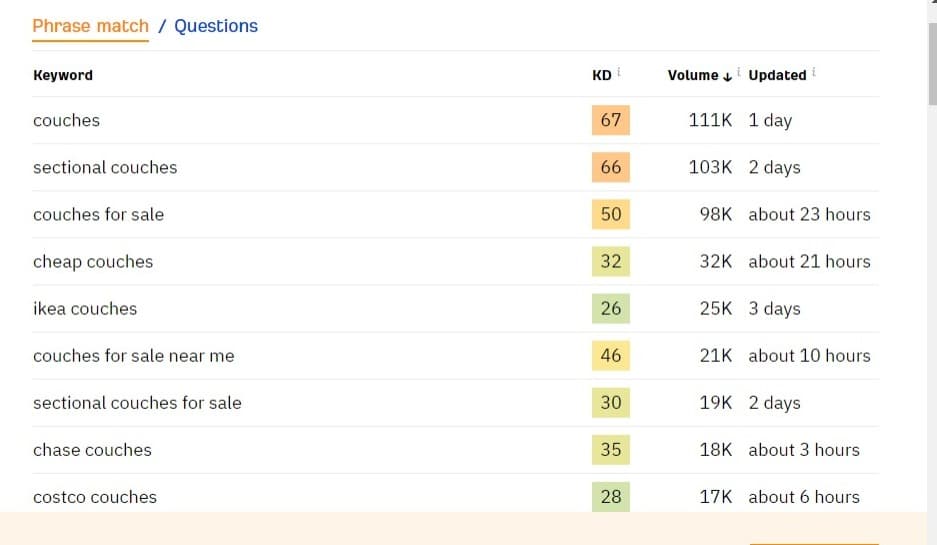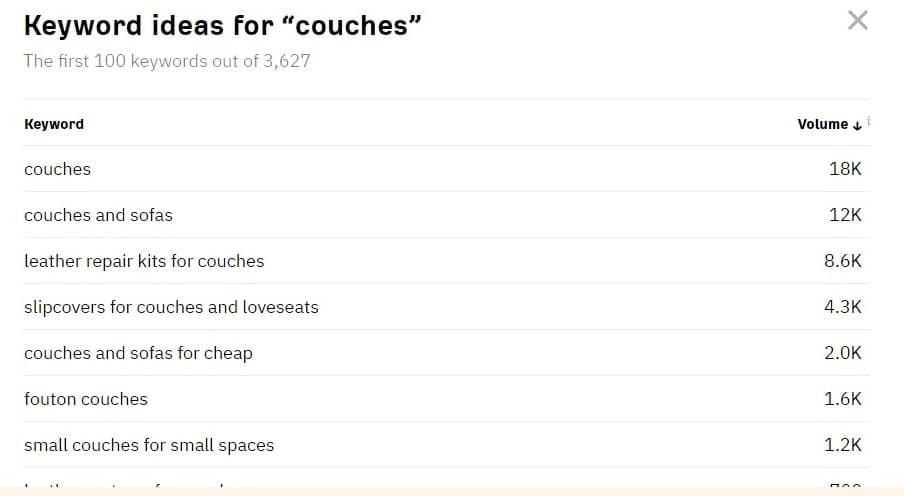If you run an e-commerce business and rely on Amazon to sell your products, you’re likely already familiar with the term SEO—Search Engine Optimization. After all, Amazon itself functions as a search engine where people actively search for products to explore and purchase.
To reach that audience, you’re probably using PPC ads and optimizing your product listings to appear organically—helping reduce your marketing costs over time.
But here’s what many sellers overlook: Amazon listings also appear on external search engines like Google. And yes, you can optimize your Amazon store for Google too—that’s known as SEO around the globe.
If you are a beginner and still unaware of the term, here is a pretty simple definition of SEO:
Search engine optimization (SEO) is optimizing a webpage to rank organically on the search engines.
For instance, you optimize your products and listings to organically rank on the first page (or ideally first position) on Amazon for your desired search terms.
How do you do that?
You follow Amazon SEO guidelines to satisfy the Amazon A9 algorithm to secure a position on the first page for your desired search term (also known as a keyword).
Similarly, if you follow Google’s SEO starter guide, you can rank your Amazon products on Google as well.
The good news? Optimizing your Amazon listings for Google won’t hurt your Amazon rankings. In fact, it can help you stand out more and increase your chances of ranking higher on both platforms.
So it’s a win-win: you’re more likely to secure better visibility on Amazon and Google.
But here’s the catch: Google SEO isn’t ideal for every Amazon store.
One major reason is that URLs play a critical role in Google rankings. If you frequently change your URLs (as many Amazon resellers do), you’re less likely to achieve stable first-page rankings on Google.
So the key question is: Which Amazon stores should invest in Google SEO and which ones shouldn’t?
Before diving into how to rank your Amazon products on Google, it’s important to first understand how Google SEO differs from Amazon SEO, and how that impacts your strategy and results.
On this page
Amazon SEO vs Google SEO:
| Aspect | Amazon SEO (From Your Store) | Google SEO (For Your Amazon Listings) |
|---|---|---|
| Platform | Focused on ranking within Amazon | Focused on ranking Amazon listings on Google |
| Primary Benefit | Higher visibility inside Amazon | Extra traffic from outside Amazon (Google) |
| When It’s Ideal | For stores with frequent listing changes or broad inventory | For niche/microniche stores with evergreen listings |
| Keyword Strategy | Based on Amazon’s internal search | Uses tools like Google Keyword Planner, Ahrefs, SEMrush |
| Content Strategy | Optimize titles, bullets, backend keywords | Create original, detailed, keyword-rich content |
| Visuals | Use product images, A+ Content | Use optimized images with alt text |
| URL Stability | Not critical | Essential — changing URLs hurts rankings |
| Backlinks | Not applicable | Need backlinks from blogs, social media, etc. |
| Traffic Source | People already on Amazon | People searching on Google (91% market share) |
| Impact on Each Other | Helps inside Amazon only | Can help both Amazon + Google rankings |
| Best For | Resellers, broad inventory sellers | Stores with couches, laptops, evergreen products |
| When to Avoid | When your primary goal is to build your marketpalce | If listings change often or face massive competition |
| Effort vs ROI | Moderate effort, faster Amazon results | Long-term effort with potential branding & free traffic |
Should you optimize your Amazon listings for Google?
Here are some situations when you should prioritize and focus on Google SEO for Amazon listings.
- Niche stores: If you are a niche or microniche store on Amazon, Google SEO will be worth the money. The reason is that you can focus on your primary keyword and optimize all your listings accordingly. It boosts rankings.
For instance, if you offer computers, you can optimize your whole store for the primary keyword. You have a great chance to rank for competitive keywords on Google. And if you are a microniche, for instance, you offer business laptops, you must focus on Google SEO for your Amazon listings. - Evergreen products: As an Amazon affiliate, I have monitored Amazon listings for years. I understand that some Amazon listings are evergreen; you don’t delete the listing for years.
Money counters, file cabinets, furniture items like couches, and many other products are evergreen. You can stick with one listing for years, if not decades. - Potential customers: You might already know that Google secures 91% of the search market in the world. It has many times bigger audiences than Amazon, so if you want to expand your store to attract potential customers from a big marketplace. You can start with starting a website, or you should prioritize Google SEO for your Amazon store.
The following example will make up your mind about it.
If we see the estimated search volume of the search term “Couches” on Amazon and Google, we see a big difference.
Here is the result for Google.

Here is the result for Amazon.

Approximately ten times more people search for couches on Google than on Amazon.
If your listings or store ranks on Google for those keywords, it’s a win-win. You are getting traffic from Google, and it’s also helping your Amazon SEO.
Makes sense?
The other great way to target this traffic is to launch your business website. With your business website, you build trust, do branding, and get tons of free traffic.
When is Google SEO not worth it for your Amazon store?
SEO has tons of benefits, but here are some situations when Google SEO isn’t your thing.
- Changing listings often: Many resellers have to change listings often. For instance, the actual seller has updated prices, and you can’t afford it, the product went out of stock, or there could be many other reasons.
In all situations, Google SEO is not a good fit for your Amazon listings. - High competition: If you see massive competition against your products, you should rather try other marketing strategies like PPC and social ads because SEO will be expensive and you’re not even spending money on your own website.
How to get started with Google SEO for Amazon?
If you think Google SEO will be worth the money for your listings, the next question that comes to mind is how to get started.
There are two ways to optimize your Amazon products for Google organic traffic. You either do it yourself or hire an expert.
Here is how to Do it yourself:
If you don’t have a good budget or the revenue isn’t good, you can start optimizing your Amazon products for Google yourself.
As said earlier, the path is almost the same as you optimized it for Amazon, with some key differences. In Google SEO, there are three pillars:
Basic tips to optimize Amazon listings:
- Optimize titles and descriptions: Use relevant keywords and write engaging, unique content instead of copying manufacturer descriptions.
- High-quality content: Google loves original content. Make your product descriptions detailed and informative.
- Optimize images: Use high-quality images and add alt text with keywords to help with Google’s image search.
- Build backlinks: Share your listings on social media, collaborate with bloggers, and get reviews to build dofollow backlinks.
- Encourage reviews: Positive reviews and responding to customer queries improve rankings.
- Use A+ Content: If available, use Amazon’s A+ Content for rich, multimedia product pages that boost engagement.
- Focus on page speed and mobile-friendliness: Ensure fast load times and make sure your listings are optimized for mobile.
If you follow all these guidelines, you can rank your Amazon store and listing on all search engines, especially on Google.
Hire an SEO consultant:
SEO experts charge you money, but they save you time and can bring you way more than yourself.
So, I would highly recommend hiring an SEO expert to optimize your Amazon store.
How to hire an SEO consultant for Amazon listings?
Knowing how and where to hire an SEO consultant or an agency for your Amazon store is also important.
As SEO is remote, you don’t need to find SEO experts locally. Anyone around the globe can do it.
You can work with any consultant but research the agency.
Here are essential things to consider while choosing an SEO specialist for your Amazon store.
- How long have they been in SEO? Where are they currently heading on the SERP?
- Does the SEO consultant have an online presence where you can review them? For instance, if an agency with a website doesn’t offer good services, you can leave bad reviews around the globe.
- Ask the consultant/agency/freelancer how much it costs.
- Ask for relevant expertise.
SEO agencies and freelancers often charge between $70 to $150 an hour. Some experts may charge over $220/h.
Make sure to find an affordable expert in your budget range.